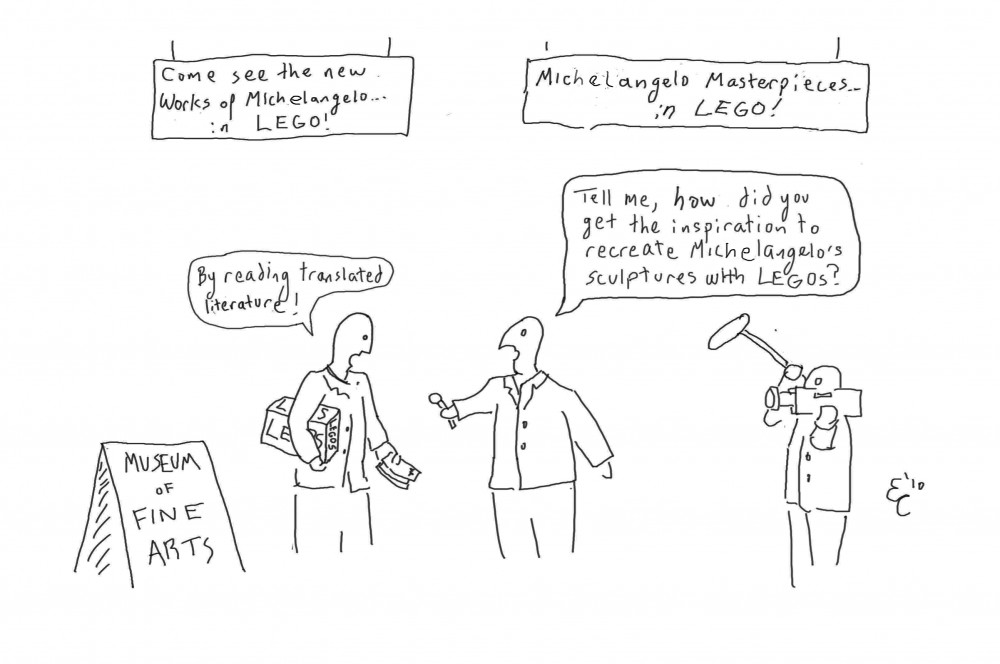I happen to know the translator of that work. I also happen to have read Naguib in Arabic, and then in English.
My friend said one thing that I could not disagree with: although technically very good, there was no Cairo in the English translation. At least not the Cairo both her and me spent such a long time in.
The Cuban-American writer, Gustavo Perez Firmat, says in one of his poems:
The fact that I
am writing to you
in English
already falsifies what I
wanted to tell you.
My subject:
how to explain to you that I
don’t belong to English
though I belong nowhere else.
Translating culture is a very hard task, and the more the source and target cultures differ, the harder it becomes to bridge the gap. Naguib in Turkish, or Farsi, would probably be more Cairene than Naguib in English or Swedish.
The way around it would be to limit literary and cultural translations to bilingual people who either spent their childhood in the source country, or come from bi-cultural families. Then again, being bilingual, or even bi-cultural, does not make you a brilliant translator. So maybe we could employ them as some sort of consultants to the translator?
Just dreaming aloud..

(Thanks to Patty Ball and The Quad)
For all your English to Arabic and vice versa translations that will help you expand your business into the Middle East visit Arabic Language Experts at http://www.arabic.com.au.
No comments:
Post a Comment